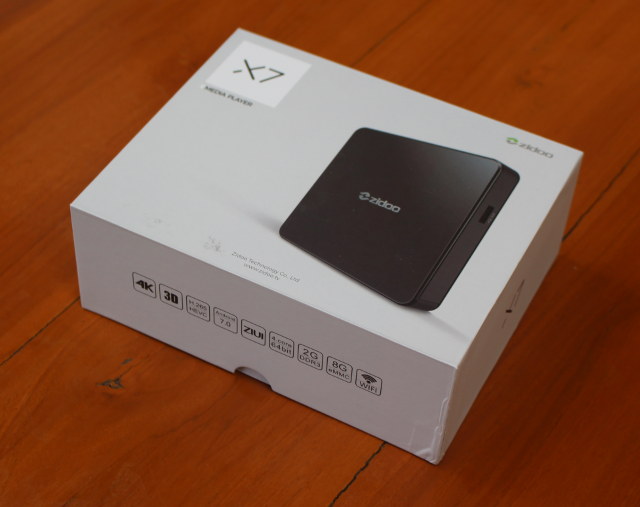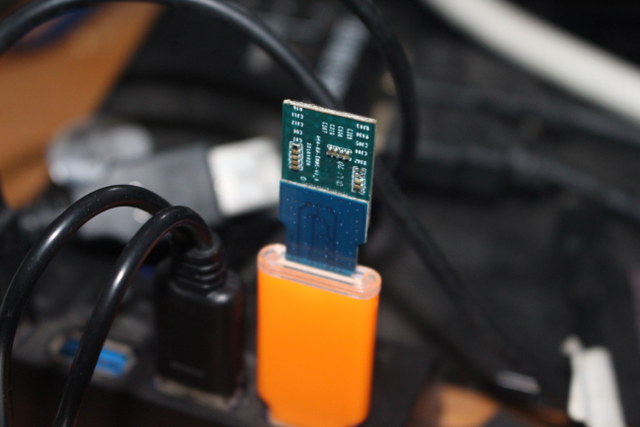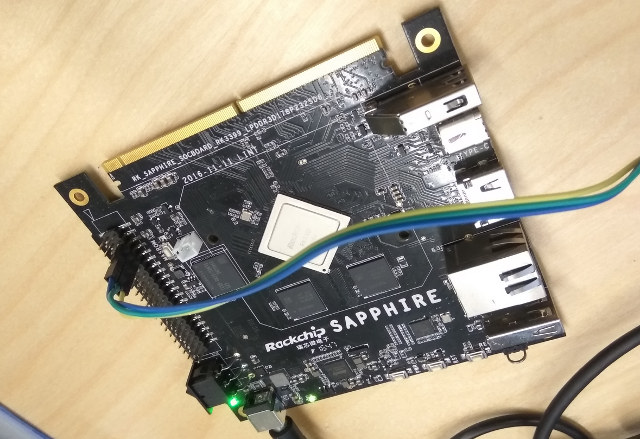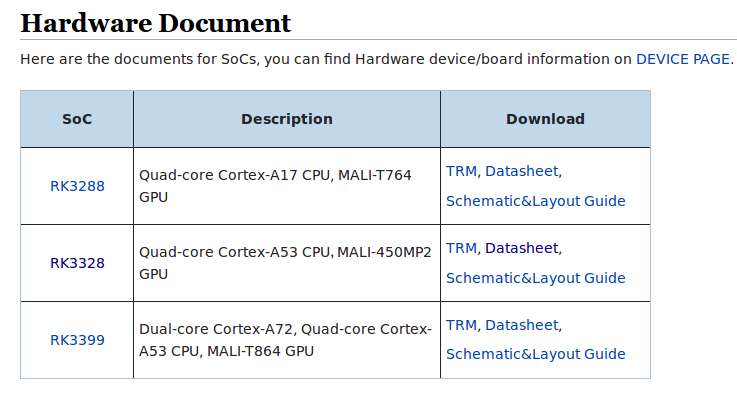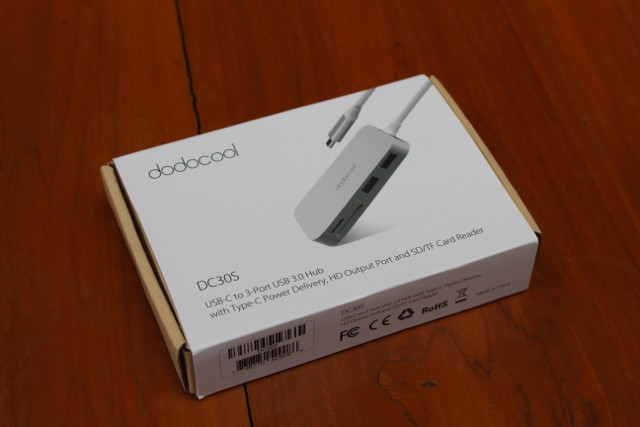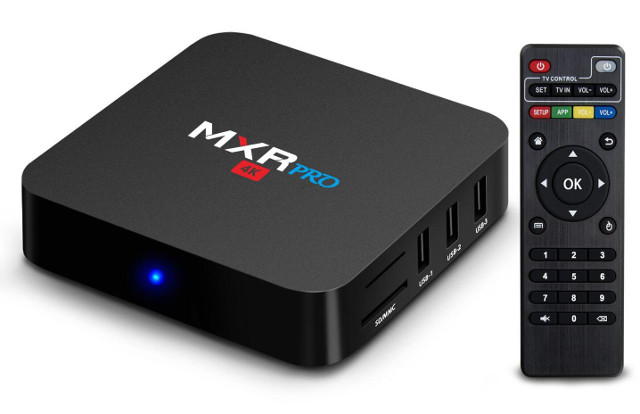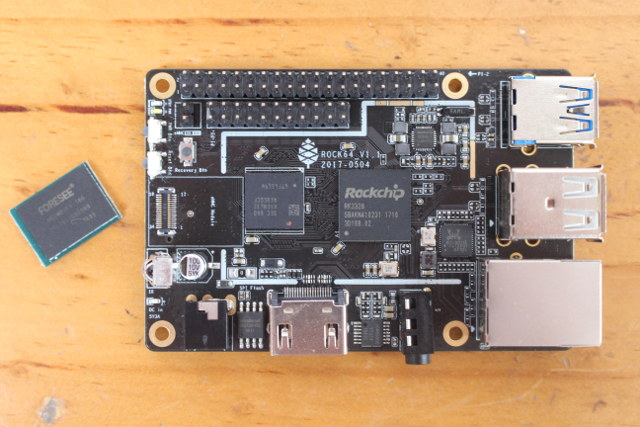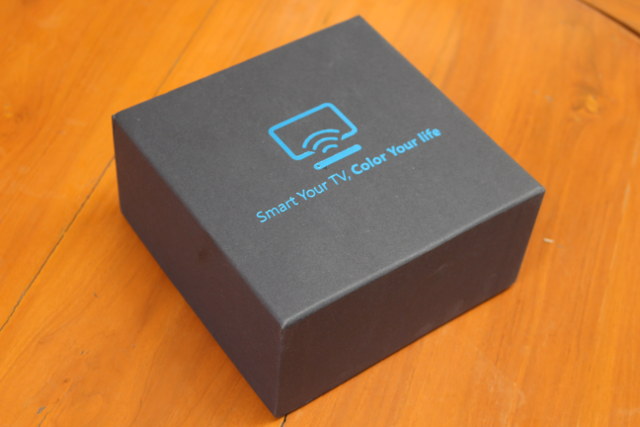Zidoo X7 is another Rockchip RK3328 based TV box that has the advantage of coming with 2GB RAM, 802.11ac WiFi and Bluetooth 4.1, as well as Zidoo firmware support, compared to its cheaper competitors such as A95X R2 TV box. The company sent me a review sample to check out it. As a side note, it was quite a challenge to get the box, as my country of residence enacted a new law requiring a “broadcasting license” to import TV boxes and HDMI dongles, even if you get just one unit, so the first attempt failed to got through customs, but eventually I managed to get the box through a local reseller. Back to the review… As usual I’ll write a first part showcasing the hardware design today, before testing the firmware, and publishing my results next month. Zidoo X7 Unboxing The package shows some of the key features of […]
ROCK64 Board Review – Part 2: Quick Start Guide with Ubuntu 16.04.3 MATE, Multimedia Features, Some Benchmarks
Pine64 ROCK64 is the first maker board based on Rockchip RK3328 processor, and is potentially interesting for various applications including network storage thanks to USB 3.0 and Gigabit Ethernet, multimedia applications with 4K HDR video support, as well as other applications requiring I/Os. I’ve already tested Rock64 board with Android 7.1 operating system, so today I’ll report by finding and experience with Ubuntu 16.04.3 with MATE desktop. Selecting and Flashing a Linux Image You’ll find several operating systems in the Wiki, but you’ll also find more cutting edge images in ayufan’s github. But first let me explain some vocabulary used for Pine64 firmware files: Engineering version – Becomes with release build based on the stock build develop by Pine64 and the SoC vendor. It’s supposed to be more stable, but get less updates Community versions (currently managed via ayufan) are more frequently updates, and comes with more recent features. You’ll find […]
Rockchip Sapphire is a $75 Rockchip RK3399 Development Board
While there are several Rockchip RK3399 boards on the market, I’d still recommend to use Firefly-RK3399 development board for Android and Linux based projects since they have decent documentation, and the board has been around for several months now. Price is a little high however, as it starts at $159 on Amazon US. There’s been other boards like 9Tripod RK3399 that’s a little cheaper, but mostly targeting the Chinese market, and Shenzhen Xunlong is working on their own RK3399 board and module, but it’s not available yet. Nightseas user bought another board called Rockchip Sapphire on Taobao for just 500 RMB (~$75 US), and reported his findings on Armbian forums. Rockchip SAPPHIRE board specifications: SoC – Rockhip RK3399 hexa-core big.LITTLE processor with two ARM Cortex A72 cores, four Cortex A53 cores, and an ARM Mali-T860 MP4 GPU System Memory – 4 GB LPDDR3, dual channel Storage – 8 GB eMMC […]
Rockchip Has Setup an Official Open Source Website with Software & Hardware Documentation, Source Code
As a young engineer, I first understood the importance of good documentation thanks to an incomplete Holtek MCU datasheet that made us waste weeks of development, and the value open source software thanks to Sigma Designs’ SDK that was full of binary blobs with our applications often crashing inside those, leading to software development delays, especially since we had access to limited support. More recently, if you ever worked with the most popular Chinese processors found in ARM Linux development board, usually made by Allwinner, Amlogic, or Rockchip, you must have gone through roadblocks due to a lack of documentation and software support. So far, Allwinner is purely relying on linux-sunxi community and “leaks” of their documentation and SDKs, while Amlogic has had their “open linux” microsite for several years, but you won’t find complete documentation like technical reference manual, schematics, and part of the source code requires you to […]
Checking Out Dodocool DC30S USB type C Hub with USB 3.0 Ports, Power Delivery, HDMI Output, and Card Reader
I reviewed Vorke Z3 Android mini PC last month, the first mini PC I’ve received with a USB type C port capable of handling video output too. I could see support for dual HDMI displays in the firmware, but at the time I did not have a USB type C hub with HDMI output. But Dodocool sent me their DC30C USB type C hub so I’ve finally been able to give a try. Dodocool DC30S Specifications USB Input – 13 cm USB 3.1 Type-C cable USB Outputs – 3x USB 3.0 type A ports up to 5 Gbps; 1x USB 3.1 Type-C PD charging port Video Output – HDMI port Storage – SD & Micro SD card reader Dodocool DC30S Unboxing First the package which gives basic info about the USB hub. The device comes with a warranty registration card, and a multi-language user manual. One side comes with the […]
Rockchip RK3328 based MXR PRO TV Box Boasts 4GB RAM, 32GB Flash
Most users of TV boxes will do just fine with 2 GB RAM, especially with lower end ARM Cortex A53 systems, but if you have somewhat low processing needs, but high memory requirements, MXR Pro TV box powered by Rockchip RK3328 quad core Cortex A53 processor, and running Android 7.1 comes with 4GB RAM, and 32GB storage. MXR PRO 4K TV box specifications: SoC – Rockchip RK3328 quad core Cortex A53 processor @ 1.5 GHz with Mali-450MP2 GPU System Memory – 4GB DDR3 Storage – 32 GB eMMC flash + SD card slot Video Output – HDMI 2.0a up to 4K @ 60 Hz with HDR10 and HLG support, 3.5mm AV port (composite) Video Codec – 4K VP9, H.265 and H.264. 1080p VC-1, MPEG-1/2/4, VP6/8 Audio – Via HDMI, AV port (stereo audio), and 3.5mm coaxial S/PDIF jack Connectivity – 10/100M Ethernet, single band 802.11 b/g/n WiFi USB – 3x […]
ROCK64 Board Review – Part 1: eMMC Flash Module, Android 7.1 Firmware, Benchmarks, and Kodi
ROCK64 is the second ARM Linux development board by Pine64 that is based on Rockchip RK3328 processor, instead of Allwinner 64 for Pine A64 board, and while both processors comes with four Cortex A53 cores, the Rockchip processor offers a faster GPU, 4K @ 60 Hz video support, as well as USB 3.0 support. I’ve got a sample with an eMMC flash module, and I’m going to test it first with Android 7.1, since those were the only firmware images currently available on the Wiki, but Linux will be available before the board ships publicly at the end of July. Rock64 Linux Ports Status There are now at least three Linux ports in progress: ayufan’s Debian Jessie and Ubuntu Xenial images which are now in pre-release, but should officially be released next week. Arch Linux ARM with no pre-built Rock64 images yet Fedora 25 minimal Image The Yocto Project support […]
Bqeel MVR9 TV Box Review – Part 1: Specifications, Unboxing and Teardown
All Rockchip RK3328 based 4K TV boxes I’ve seen so far come with Fast Ethernet, not Gigabit Ethernet, with the exclusion of Rock64, which is not a TV box, but a development board. But Nagrace sent me Bqeel MVR9 box that comes with Gigabit Ethernet, in order to write a review. I’ll start by having a look at the hardware first, before experimenting with the firmware in several weeks. Bqeel MVR9 Specifications SoC – Rockchip RK3328 quad core Cortex A53 processor with ARM Mali-450MP2 GPU System Memory – 2 GB DDR4 @ 1066 MHz Storage – 16 GB eMMC flash + micro SD card slot Video Output – HDMI 2.0a up to 4K @ 60 Hz with HDR10 and HLG support, 3.5mm AV port (composite video) Video Codec – 4K VP9, H.265 and H.264, 1080p VC-1, MPEG-1/2/4, VP6/8 Audio Output – Via HDMI, and AV (stereo audio) ports; optical S/PDIF […]


